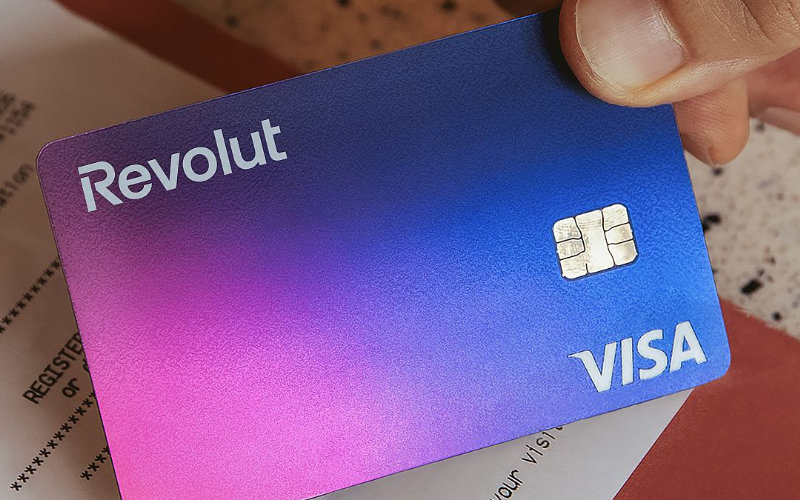Physical Address
60 Ekwema Cres, Layout 460281, Imo
Physical Address
60 Ekwema Cres, Layout 460281, Imo

Revolut is entering Morocco with plans to expand across Africa. This is an important milestone for the digital banking company in its growth beyond Europe. Well-known as a company providing very easy online banking services, Revolut picked Morocco as the first big opening on the African continent. This move indicates that the company is positive about Africa’s emerging scene in digital finance.
Revolut has appointed Ms Amine Berrada, formerly general manager at Uber, to oversee new efforts in Morocco. That is a sign of the company’s deep commitment to establishing a firm presence in the country. Currently, Revolut is trying to procure full banking licenses in both Morocco and South Africa in order to extend its offerings, as well as operate fully as a bank in those countries.
Read Next: Bolt is Testing a New Model in Lagos to Reward Top Drivers by Reducing Their Commission Fees
In Morocco, while banking is relatively mature, digital banking is quite new. There is some mild increase in the use of online financial tools, and that is why Revolut’s coming is at a very promising moment. But then there are also issues. For example, the Moroccan economy is buoyed by the dirham, which is a non-convertible currency; thus exchange on international markets is not free. Therefore, that makes it very important to adjust the widely hailed multi-currency service of Revolut to fit Morocco’s financial rules.

In addition, the country has a very detailed licensing process governed by Bank Al-Maghrib, the central bank. Meeting those requirements is a prerequisite to getting an approval from Revolut. Regardless of these consequences, Morocco is widely considered a very good point of entry into Africa for Revolut. Close proximity to Europe, vibrant communities of Moroccans abroad, and digital financial evolution in its infancy make it the most appealing way in.
Farther south on the continent, Revolut is also making bold strides into South Africa. Preliminary discussions have taken place for the company to be granted a full banking license there. The license would permit Revolut to do much more than merely providing electronic wallets or remittance services; it would open the door for widening its range of banking activities.
But that isn’t all. South Africa is a carefully regulated market. Its rules closely tie in with the treatment of personal information by companies, as provided for in the Protection of Personal Information Act (POPIA). Besides these constraints, the South African Reserve Bank (SARB) also enforces strict exchange controls. Then lastly, the country is complicated with tax rules. All these factors make it very tortuous for anyone wanting to operate a bank in South Africa.
For that matter, competition is also stout. There are plenty of well-established digital banks and payment platforms in South Africa already. For instance, TymeBank serves more than ten million consumers and has some serious backing. Discovery Bank, Bank Zero, and payment companies such as Ozow and Stitch are among other pivotal entrants. These companies enjoy close links to local financial systems and have built a high level of trust among customers, and therefore it is not easy for any new entrants like Revolut.
Still, Revolut is serious about Africa as a huge opportunity, as evidenced by its activities in Morocco and South Africa. It is not planning for a short visit to the continent, but instead wants to build into it some lasting relationships and infrastructure. Getting that much-needed license and bringing in the experience of leaders such as Amine Berrada, Revolut is working tremendously well to earn the trust to succeed in Africa.
Morocco is probably going to be the first trial run of Revolut’s Africa strategy. Here, the company can adapt its services to local rules and customer needs. At the same time, Morocco is a remittance market – sending money between countries, especially to Europe and back – that could add lots of value for Revolut.
Read Next: How to Retrieve JAMB Profile Code on your Phone 2025
Additionally, its plans to build a presence in South Africa – which is a large and quite sophisticated financial market – stresses that Revolut is in this for the long haul. The combined moves into Morocco and South Africa could also bolster Revolut’s presence across both North and sub-Saharan Africa.
Revolut is entering Morocco with plans to expand across Africa through some clever immediate actions such as localized leadership appointments and licensing efforts. Such a strategy might possibly position the company well to become a substantial contributor and player in Africa’s digital banking future. As the continent moves steadily toward adopting digital financial services, the entry of Revolut is bound to open up more options and innovations for users in Morocco and beyond.
Was this information useful? Drop a nice comment below. You can also check out other useful contents by following us on X/Twitter @siliconafritech, Instagram @Siliconafricatech, or Facebook @SiliconAfrica.